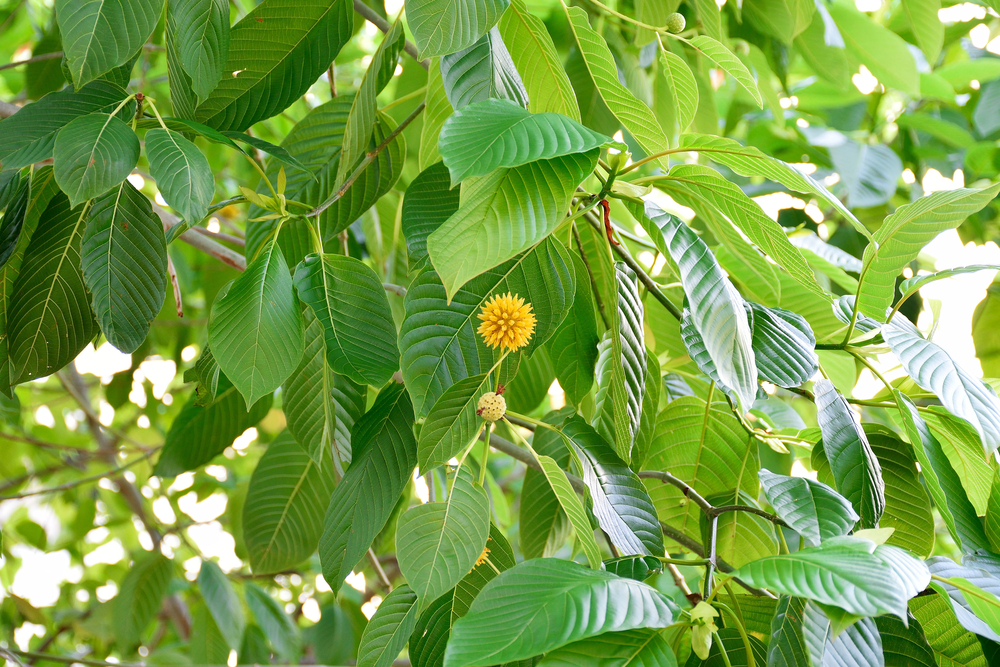Disclosure: In any review for a product or service, products or compensation may have been provided to me to help facilitate my review. All opinions are my own and honest. I am disclosing this in accordance with FTC Guidelines. Please see “Disclose” and "Terms of Use" tabs for more information.

Many major commodities that we use every day are often responsible for deforestation and ecosystem destruction. Coffee and palm oil production are widely known to result in forest clearances that amongst other things, may wipe out the last wild orangutan apes. It doesn’t have to be this way – let’s look at two examples of how farmers in South East Asia are managing to look after their natural world while making a living from cash crops.
Kratom
Mitragyna speciosa (also known as kratom) is a tree that grows in Indonesia, Malaysia and Thailand. It has been used for Millennia by the peoples living there as a medicine for treating ailments such as diarrhea, inflammation and opium addiction. It is also known for its stimulant properties and is used at social gatherings instead of marijuana (indeed, it is more socially acceptable to chew some kratom than smoke a joint), and has stimulant properties so manual laborers can toil in the fierce jungle heat.
Kratom products have started to be sold in the West in the last five years, and scientists have become quite excited as to this cheap, safe and readily available alternative to medical treatments for opiate addiction. As the industry has picked up, so different harvesting techniques are coming about. One kratom blog explained, “some kratom trees are destroyed when harvested by irresponsible farmers, which can cause terrible damage to the rainforest and jungle. Some cut branches down from the trees and then pick the leaves, whereas the responsible farmers pick the leaves from the tree without cutting the branches down.”
Not all firms do this. The same company above stated, “All the leaves sourced by us, including those used in our legally approved cosmetics, are taken from the tree without cutting down branches. Our farmers do not kill the trees or bring fertilizers into the jungle that destroy the ecosystem.”
While coffee was once the big cash crop, farmers are looking for new markets to sell forest products at a premium, and the leaves from the Mitragyna tree are one very important source of income for many. In the North America and much of Europe it has become increasingly popular to buy kratom powder online in recent years.
Coffee
Coffee is another major cash crop that is essential to many developing world economies. Traditionally coffee bushes were grown under the rainforest canopy with the trees above sheltering the coffee leaves below. High yield strains were developed that needed full sun and as a result coffee production has become synonymous with rainforest destruction.
The Rainforest Alliance has come to the rescue of some communities and forests. The organization shows how they prevent forests from being clear cut: “On Rainforest Alliance Certified™ farms, coffee grows in harmony with nature: soils are healthy, waterways are protected, trash is reduced or recycled, wildlife thrives and migratory bird habitat flourishes. In addition, hundreds of farms we work with have adopted climate-smart techniques that sequester carbon. Most importantly, farm communities learn the importance of protecting their natural resources, and they acquire the tools and resources to do so.”
Unlike their mass production rivals, coffee farmers can sell their beans at a premium and can make more money from less work. They live better lifestyles as a result.
In harmony with the environment
The take-out from this article is that it often makes more sense to look after the environment than to destroy it for money. You can’t eat money, and in destroying the planet you destroy the very thing that feeds you. Do look at the ethics of the ingredients of coffee before you buy – paying a little more may mean that someone can work fewer hours and still get their kids an education while living in balance with the forests in which they live.
















Speak Your Mind